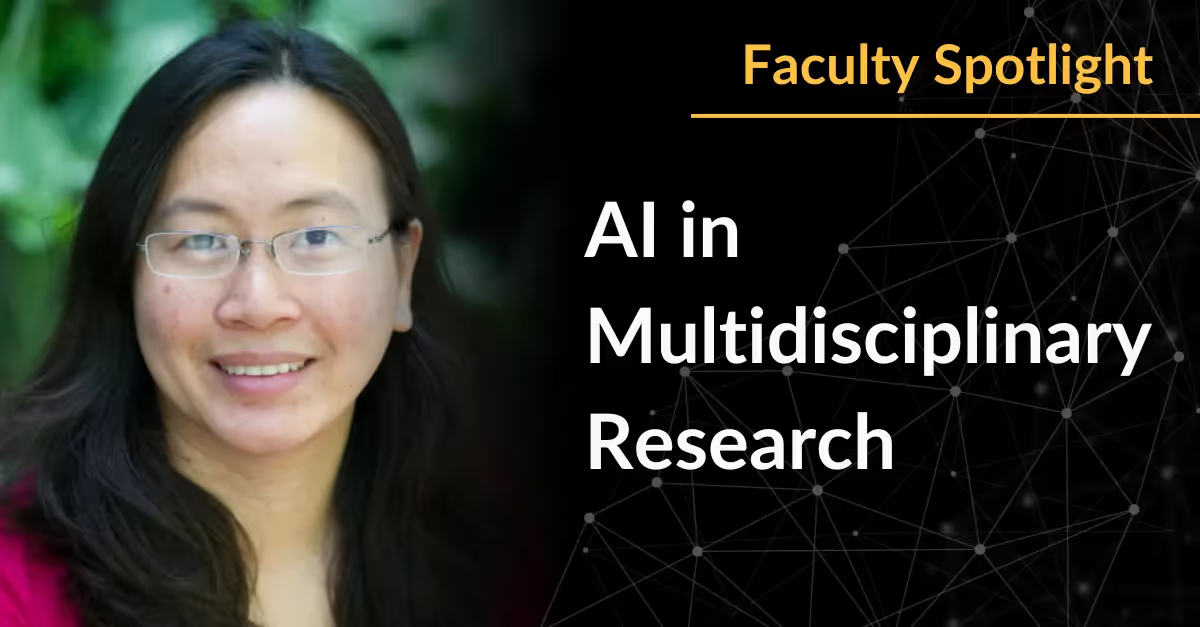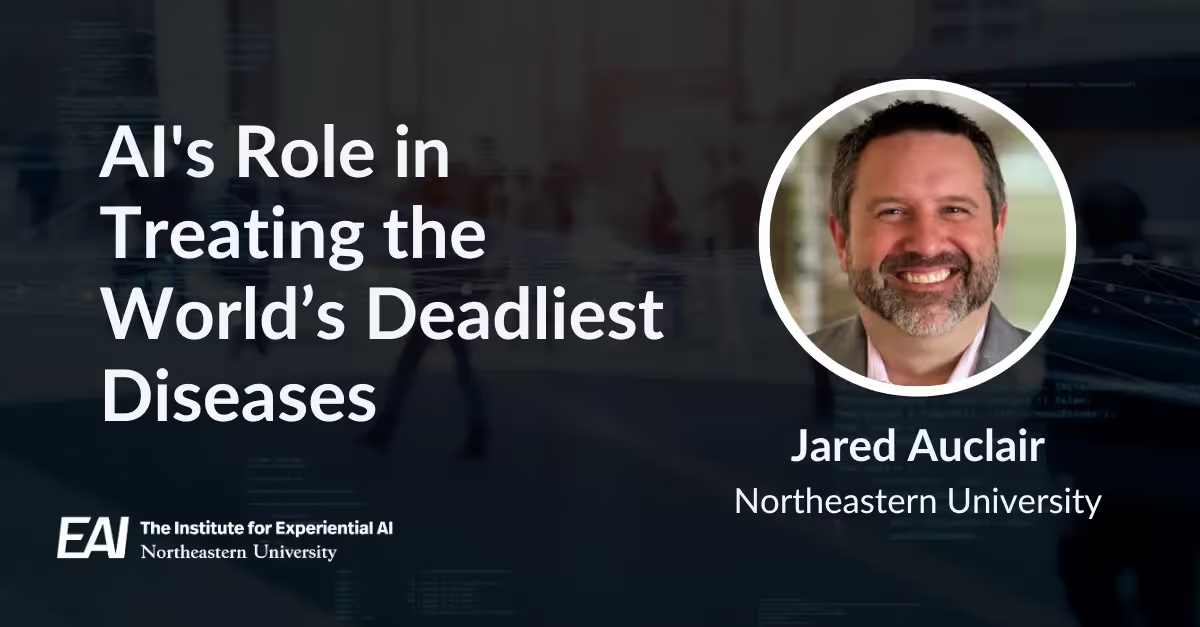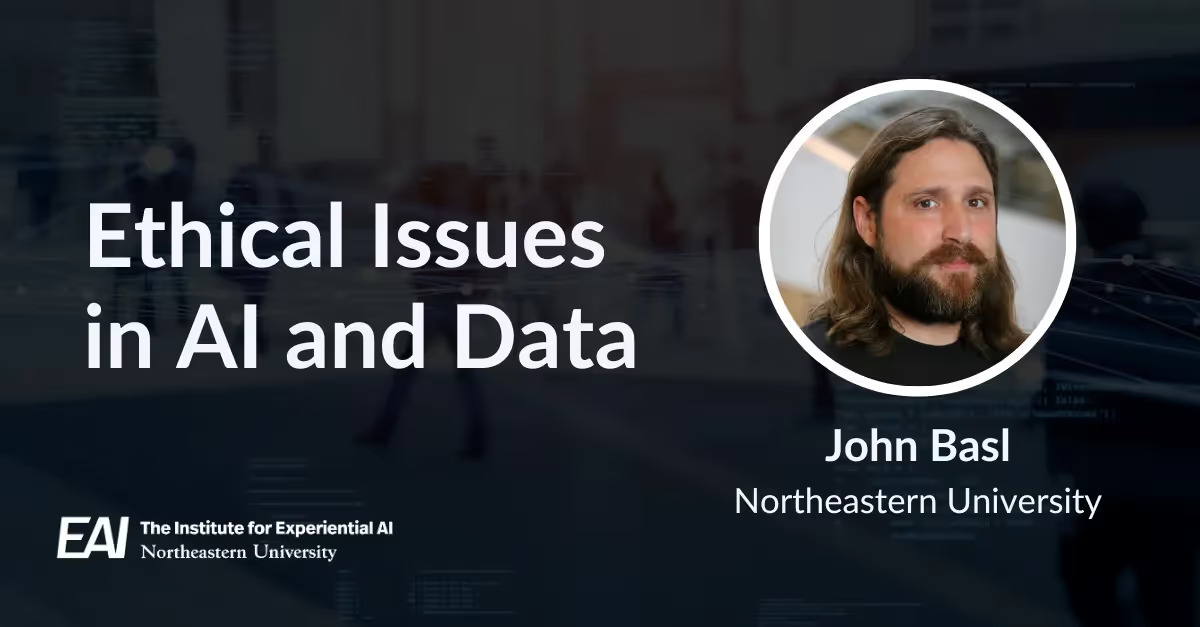Director of AI Faculty Jennifer Dy on AI in Multidisciplinary Research

Academic specialization is a double-edged sword. As researchers become more knowledgeable in their field, it becomes harder to find individuals who can traverse disciplines with grace and expertise. As the Director of AI Faculty at the Institute for Experiential AI, Jennifer Dy does exactly that, building and sustaining groundbreaking collaborations in fields as diverse as health, climate science, and psychology, all while overseeing a faculty that includes scientists, engineers, philosophers, and diplomats.
She has also partnered with medical institutions like Memorial Sloan-Kettering Cancer Center and Brigham and Women’s Hospital, won a National Science Foundation (NSF) Career award, and was elected a fellow of the Association for the Advancement of Artificial Intelligence (AAAI). Last month, she participated in Massachusetts Governor Maura Healey’s inaugural ClimaTech conference.
Getting a Footing
In this age of academic silos, how does a scientist develop such varied interests and collaborations? Dy credits her foundation in machine learning—a fascination that began as a child interested in math and engineering in the Philippines. It flourished through a doctorate in machine learning and computer vision from Purdue University and eventually as a faculty member at Northeastern University, which she joined in 2002.
“I fell in love with the field of computer vision because it's not just about processing images, but about image understanding and ultimately with machine learning because it encompasses learning from any type of data,” she says, who is also a distinguished professor in the College of Engineering and a professor in the Khoury College of Computer Sciences.
She has been fascinated in understanding how humans learn and, in the field of AI and machine learning, the potential of designing algorithms that can learn. Early on, Dy recognized the opportunity in applying machine learning to something that would be useful to society—namely, human health.
Some of her earliest research was in developing new algorithms and querying techniques to help doctors make more accurate diagnoses. As her career progressed, she studied and developed new applications for lung cancer radiotherapy, monitoring of Parkinson's symptoms, stroke rehabilitation, and many other health-related applications. These achievements ultimately led to collaborations with esteemed medical centers in New York and Boston, editorial positions at several esteemed scientific journals, and an NSF Career Award to develop tools for mining data from real-world environments, with applications for medical and satellite imaging.
“My research is about developing new machine learning methods but also grounding it in something real,” Dy says. “Because it’s that real-world application that pushes the state of the art in AI.”
Dy’s focus on the real world explains how her research and collaborations have expanded beyond health into climate science, psychology, and engineering. It also explains why she was appointed Director of AI Faculty at the Institute for Experiential AI—a career-long focus on the possibilities of AI and the kinds of collaborations needed to achieve them.
“Any new multidisciplinary project or collaboration takes a long time to build,” she says. “You have to start by listening to each other. Typically, different domains have different languages, so any successful collaboration means figuring out a common language and working together to see what people need. That's why a lot of my collaborations are built on good working relationships that have been built through the years.”
A New Venture: Climate
Recently, Jennifer joined Northeastern Professor Hanu Singh and climate scientist Sarah Das, both of the Woods Hole Oceanographic Institution, on stage at the inaugural ClimaTech conference in Boston. There, she presented a panel conversation on climate change, demonstrating how AI can be used to help forecast extreme weather events and build more sustainable infrastructure. This is another subject she knows well, having worked on AI and climate since 2014, notably in collaboration with Director of AI for Climate and Sustainability (AI4CaS) Auroop Ganguly on an NSF-funded project examining computational methods for understanding how marine life fares under extreme climate stressors.
“We have powerful algorithms,” she said, as quoted by Northeastern Global News. “Climate change is here. What can we do as an AI community?”
Part of what makes AI so powerful is its application across a wide variety of disciplines. When it comes to climate change, the nature of the challenge is partly in our ability to see the big picture—to capture, through data, the emergent phenomena and extreme variability of conditions at a planetary scale. It’s also about applying predictions at the local level and being able to inform communities and decision-makers in a timely manner. Suffice it to say, that makes for an enormous data challenge.
“The data is spatiotemporal and non-stationary, nonlinear, with teleconnections, and at different scales,” explains Dy. “Standard learning algorithms work well on predicting averages, but in climate, we have to make predictions on rare events, where we do not have a lot of data samples.”
At the same time, she says, the challenge of climate change is helping to drive innovation and push the state-of-the-art in AI. It’s a kind of mutually reinforcing feedback loop, whereby climate challenges—which do not heed human ideas of scientific discipline or research area—demand ever more fluid and robust models, which in turn require better data to produce more and more accurate predictions. In this context, Dy sees her work as focused on applications of AI that stand to benefit all of society.
“Climate change is an important problem of our times,” she says. “Machine learning and AI can help in making better climate projections at local scales to aid decision-makers and planners to prepare for projected impacts.”
In her varied appointments, affiliations, honors, and title, Dy represents exactly the kind of cross-disciplinary talent that Northeastern has long prided itself on. The Institute for Experiential AI, with its 90+ faculty members representing a range of disciplines from economics to life sciences, furthers that vision for the future of artificial intelligence.
Learn more about the Institute for Experiential AI and its climate research, including the latest from the AI for Climate and Sustainability (AI4CaS) focus area.




